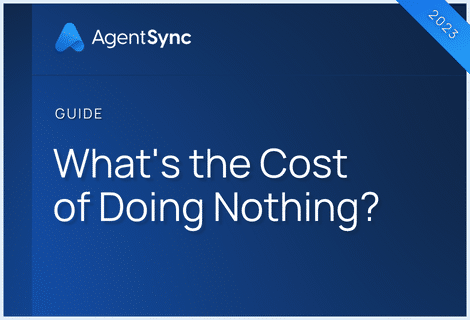

If an insurance product begins with actuaries and carriers, the end of the pipeline is usually with a producer sitting in front of a client. We’ve explored the various channels available to facilitate insurance sales – at times meandering and hydra-esque – distribution, but even within the chain of carrier-agency-agent, there is a good deal of variety.
Let’s take a look at some of the common ways that producers are hooked to carriers.
Elsewhere we’ve covered the distinction between producer, agent, and broker. Like a quadrilateral, rectangle, and trapezoid, some definitions in insurance overlap. But all of the roles we’re examining here must hold a producer license.
As always, we’re presenting these for general awareness and topical discussion, but when deciding what’s right for you and your organization, do your own research and due diligence before making a decision.
Insurance broker contracts
Brokers are some of the producer contracts with the most distance from the carrier. Like your cousin’s cousin, they might still have your phone number, but they aren’t bound by blood. Brokers aren’t appointed by carriers and carriers’ responsibility for a broker relationship is pretty low on the sliding scale. Instead, a broker has these loose relationships with many carriers that give them the ability to solicit coverage on their clients’ behalf, but ultimately they aren’t binding contracts and don’t have many incentives from the carriers themselves to select any particular carrier over another.
Essentially, brokers are bound to work on behalf of their client, period, so they have to be somewhat carrier-agnostic.
Of course, there are many sizes of brokerages, so this may be a role that is performed fairly independently, or there may be a more complex hierarchy within a large brokerage.
Independent insurance agents

An independent insurance agent is someone who works with multiple carriers through agencies or other organizations like wholesalers or insurance marketing organizations (IMOs). Often, an independent insurance agent is operating at a smaller firm or agency and offers products from a variety of carriers.
To a layperson, independent agents and brokers may seem to be quite similar; both offer products and services from multiple insurers. Yet, there are key distinctions. Independent agents are appointed by carriers, bind coverage on the carriers’ behalf, and ultimately are subject to the profit incentives of the carriers they work with. While brokers are paid by clients to find the most affordable and best-fit product for the clients’ needs, agents – even independent agents – may tend to favor policies from carriers that offer the best commission structures or other incentives.
While some independent agents establish firms that grow to hundreds of agents, all selling from the same collection of carriers, many independent insurance firms are solo acts or have only a handful of agents. While they usually receive some kind of support from whatever agency, IMO, or what have you, their daily business operations are usually riding on their shoulders, from payroll to capital expenses.
This means that independent agents are often taking on more risks and responsibilities, but they are also taking home a larger share of any commissions from sales.
What is a captive insurance agent?
Captive insurance agents only sell the coverage of their parent company. Whereas independent agents can compare many policies across the table, a captive agent can only sell the stable of products offered by whatever carrier, MGA, or large agency they are “captive” to.
Captive agents have several advantages – you might also think of them as franchisees:
- Use the parent company’s marketing collateral for name recognition
- Often have a pre-generated book of business
- Some amount of office space and personnel costs are covered by the parent company
Of course, just like a franchise-owner, captive insurance agents also give up a sizable share of commissions, and, in insurance, that book of business isn’t super portable if your relationship with your parent company sours.
What is an LOA in insurance?
While LOA in insurance typically stands for lines of authority (like life, health, property, and casualty), in some contexts LOA stands for licensed-only agent. A licensed-only agent is a producer that an agency treats more like an employee. The agency pays them a steady stream of income, and may include incentive payments that are tied to performance, but the bottom line is they aren’t paid a traditional commission on the contract.
For producers, while not owning your book of business is a limitation, the tradeoff benefits of being an LOA and treated more like an employee come in the form of stability. Having a more regular paycheck and a company that provides space and funnels clients your way can provide some relief from the constant prospecting and marketing, and feast-or-famine wages of being in a more traditional sales-and-commission structure.
For agencies, MGAs, and carriers, the LOA structure provides obvious benefits in making sure the business and not the producer owns the book of business. On the other hand, it comes with the liability of salaried employees and providing more tangible benefits and incentives to make it worth it for the producer.
Of course, these are just basic structures with infinite variations and levels of hierarchy, and for any carrier, MGA, or agency bearing responsibility for producers who may be downstream of other distributors, tracking, and verifying licensure can be insanely complicated.
If you’re ready for a digital system that can keep it straight, check out what AgentSync Manage can do.

